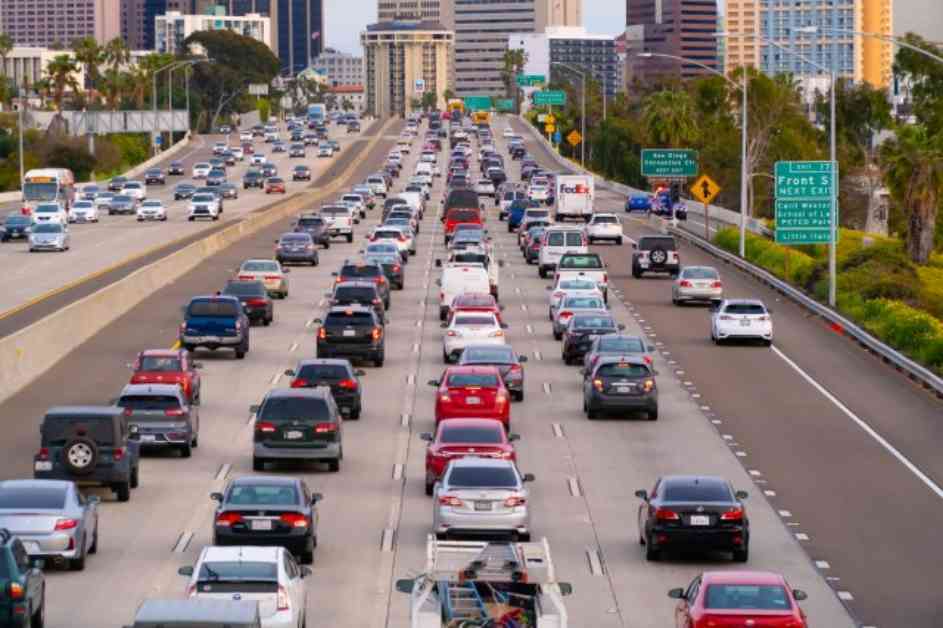Nearly 72 million travelers are expected to hit the road this week for Thanksgiving, according to AAA projections, marking an increase of 1.3 million road travelers compared to last year. Stacey Barber, vice president of AAA Travel, mentioned that Thanksgiving is the busiest holiday for travel, with new records expected in driving, flying, and cruising this year.
If you’re planning to travel by car this week, it’s essential to consider the optimal times to avoid traffic. INRIX researchers suggest that Tuesday and Wednesday afternoon will be the most congested periods. However, Thanksgiving Day itself is considered the best time to hit the road as most people will have already reached their destinations.
Here’s a breakdown of the best and worst times to travel by car this Thanksgiving week:
– Monday, Nov. 25: Worst Travel Time – 1-5 p.m., Best Travel Time – Before 11 a.m.
– Tuesday, Nov. 26: Worst Travel Time – 1-7 p.m., Best Travel Time – Before 10 a.m.
– Wednesday, Nov. 27: Worst Travel Time – 1-5 p.m., Best Travel Time – Before 10 a.m.
– Thursday, Nov. 28 (Thanksgiving Day): Minimal Traffic Impact Expected
– Friday, Nov. 29: Worst Travel Time – 7-10 a.m., Best Travel Time – After 1 p.m.
– Saturday, Nov. 30: Worst Travel Time – 4-8 p.m., Best Travel Time – Before 1 p.m.
– Sunday, Dec. 1: Worst Travel Time – Noon to 6 p.m., Best Travel Time – Before 1 p.m.
– Monday, Dec. 2: Worst Travel Time – 9 a.m. to 6 p.m., Best Travel Time – Before 8 a.m. / After 7 p.m. (AAA projections)
Bob Pishue, a transportation analyst at INRIX, emphasized the importance of using traffic apps and local news alerts to navigate around potential delays, especially in metropolitan areas with the expected surge of travelers.
In addition to strategic travel times, Anlleyn Venegas, a senior public affairs specialist for AAA, advised against driving at night due to drowsiness, which can be as dangerous as impaired driving. She recommended getting at least 7 hours of rest before a trip and taking breaks every two hours, especially for long journeys. Venegas also suggested preparing an emergency kit with essentials like water, a phone charger, snacks, and a blanket to be prepared for any unexpected travel delays.
